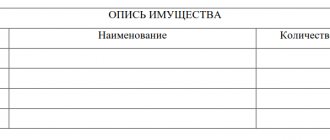Failure of a residential tenant to fulfill his obligations under a social tenancy agreement
Residential premises of the municipal housing stock are provided for use on the basis of a social tenancy agreement. The landlord of these residential premises in the city of Barnaul is the Housing and Communal Services Committee of the city of Barnaul.
After concluding a social tenancy agreement, the tenant of a residential premises has the following responsibilities:
- use the residential premises for their intended purpose and within the limits established by the Housing Code of the Russian Federation;
— ensure the safety of living quarters;
- maintain the proper condition of the living space;
— carry out routine repairs of residential premises;
— pay rent for housing and utilities on time;
- inform the landlord within the time period established by the contract about changes in the grounds and conditions giving the right to use residential premises under a social tenancy agreement.
In addition to these responsibilities, the tenant bears others provided for by the Housing Code of the Russian Federation, other federal laws and the social tenancy agreement.
The responsibilities of the tenant are also contained in the Rules for the Use of Residential Premises, approved by Decree of the Government of the Russian Federation of January 21, 2006 No. 25 “On approval of the Rules for the use of residential premises.”
Clause 10 of these Rules states that, as a user of residential premises, the tenant is obliged to:
a) use the residential premises for their intended purpose and within the limits established by the Housing Code of the Russian Federation;
b) use the residential premises taking into account the rights and legitimate interests of citizens and neighbors living in the residential premises;
c) ensure the safety of the residential premises, prevent the performance of work in the residential premises or the commission of other actions leading to its damage;
d) maintain the proper condition of the residential premises, as well as common areas in an apartment building (apartment), maintain cleanliness and order in the residential premises, entrances, elevator cabins, stairwells, and other common areas, ensure the safety of sanitary and other equipment equipment, as well as comply with other requirements established by the Rules;
e) immediately take possible measures to eliminate detected defects in the residential premises or sanitary and other equipment located in it, and, if necessary, report them to the landlord or the relevant management organization;
f) carry out routine repairs of residential premises;
g) pay rent for housing and utilities on time. The obligation to pay for residential premises and utilities arises from the moment of concluding a social tenancy agreement for residential premises in accordance with the law;
h) inform the landlord, within the time frame established by the social tenancy agreement, about changes in the grounds and conditions affecting the use of the residential premises;
i) allow, at a pre-agreed time, into the residential premises employees of the landlord or persons authorized by him, representatives of state control and supervision bodies to inspect the technical and sanitary condition of the residential premises, sanitary and other equipment located in it, as well as to carry out the necessary repair work ;
j) not carry out reconstruction and (or) redevelopment of residential premises in violation of the established procedure;
k) upon termination of the right to use residential premises, hand over to the lessor in good condition the residential premises, sanitary and other equipment located in it, pay the cost of repairs of the residential premises, sanitary and technical and other equipment located in it that were not carried out by the tenant, or carry out repairs at your own expense, as well as pay off debts for payment of housing and utilities.
Failure to fulfill these obligations entails liability provided for by law. For violation by the tenant of the legislation on the use of residential premises, civil and administrative liability is provided.
Administrative liability is established by Article 7.21 “Violation of the rules for the use of residential premises” of the Code of Administrative Offenses of the Russian Federation, which stipulates that damage to residential buildings, residential premises, as well as damage to their equipment, unauthorized redevelopment of residential premises or their use for other purposes entails a warning or the imposition of an administrative fine.
Thus, the Housing Code of the Russian Federation establishes liability for the use of residential premises for purposes other than their intended purpose, systematic violation of the rights and legitimate interests of neighbors or mismanagement of residential premises, allowing for their destruction and provides for the termination of a social tenancy agreement, as well as the eviction of the tenant and his family members without providing another residential premises (Articles 83 and 91 of the Housing Code of the Russian Federation).
Thus, each residential premises must be maintained by the tenant in proper condition. Failure to fulfill obligations under a social tenancy agreement, including damage to residential premises, entails adverse consequences in the form of bringing the tenant to administrative as well as civil liability.
Legal department
housing and communal services committee
farms in Barnaul
Civil Code of the Russian Federation Part 2
| Previous chapter | Content | Next chapter |
| SECTION IV. SPECIFIC TYPES OF OBLIGATIONS |
CHAPTER 35. RENTING RESIDENTIAL PREMISES
Article 671. Residential rental agreement
1. Under a rental agreement for residential premises, one party - the owner of the residential premises or a person authorized by him (lessor) - undertakes to provide the other party (tenant) with residential premises for a fee for possession and use for living in it.
. Legal entities may be provided with possession and (or) use of residential premises on the basis of a lease or other agreement. A legal entity may use residential premises only for the residence of citizens.
Article 672. Lease agreement for residential premises in a social housing stock
(as amended by Federal Law dated July 21, 2014 N 217-FZ)
1. In the state and municipal housing stock for social use, residential premises are provided to citizens under a contract for the social rental of residential premises, under a contract for the rental of residential premises for a housing fund for social use. (as amended by Federal Law dated July 21, 2014 N 217-FZ)
. Members of his family living under a social tenancy agreement with the tenant enjoy all rights and bear all obligations under the tenancy agreement on an equal basis with the tenant.
At the request of the employer and his family members, the contract may be concluded with one of the family members. In the event of the death of the tenant or his departure from the residential premises, the contract is concluded with one of the family members living in the residential premises.
. A social tenancy agreement for residential premises is concluded on the grounds, conditions and in the manner prescribed by housing legislation. The rules of Articles 674, 675, 678, 680, paragraphs 1 - 3 of Article 685 of this Code apply to such an agreement. (as amended by Federal Law dated December 29, 2004 N 189-FZ)
Other provisions of this Code apply to a social rental agreement for residential premises, unless otherwise provided by housing legislation.
4. A rental agreement for residential premises of a social housing stock is concluded on the grounds, on the terms and in the manner provided for by housing legislation. The rules of parts one and two of Article 678, paragraph 3 of Article 681 and Article 686 of this Code apply to such an agreement. Other provisions of this Code apply to the lease agreement for residential premises of a social housing stock, unless otherwise provided by housing legislation. (Clause 4 introduced by Federal Law dated July 21, 2014 N 217-FZ)
Article 673. Object of a residential lease agreement
1. The object of a residential lease agreement may be an isolated residential premises suitable for permanent residence (apartment, residential building, part of an apartment or residential building).
The suitability of residential premises for living is determined in the manner prescribed by housing legislation.
2. The tenant of residential premises in an apartment building, along with the use of residential premises, has the right to use the property specified in Article 290 of this Code.
Article 674. Form of a residential lease agreement
1. The rental agreement for residential premises is concluded in writing.
2. A restriction (encumbrance) on the right of ownership of residential premises arising on the basis of a lease agreement for such residential premises concluded for a period of at least a year is subject to state registration in the manner established by the law on the registration of rights to real estate and transactions with it. (Clause 2 introduced by Federal Law dated July 21, 2014 N 217-FZ)
Article 675. Preservation of a residential lease agreement upon transfer of ownership of residential premises
The transfer of ownership of residential premises occupied under a lease agreement does not entail termination or modification of the residential premises lease agreement. In this case, the new owner becomes a lessor under the terms of the previously concluded rental agreement.
Article 676. Obligations of the landlord of residential premises
1. The landlord is obliged to hand over to the tenant vacant residential premises in a condition suitable for habitation.
2. The lessor is obliged to carry out proper operation of the residential building in which the rented residential premises are located, to provide or ensure the provision of necessary utilities to the tenant for a fee, to ensure the repair of the common property of the apartment building and devices for providing utilities located in the residential premises.
Article 677. Employer and citizens permanently residing with him
1. Only a citizen can be a tenant under a residential lease agreement.
. The contract must indicate citizens permanently residing in the residential premises with the tenant. In the absence of such instructions in the contract, the accommodation of these citizens is carried out in accordance with the rules of Article 679 of this Code.
Citizens who permanently live with the tenant have equal rights to use residential premises. The relationship between the employer and such citizens is determined by law.
. The tenant is responsible to the landlord for the actions of citizens permanently residing with him who violate the terms of the rental agreement.
. Citizens permanently residing with the tenant may, after notifying the landlord, enter into an agreement with the tenant that all citizens permanently residing in the residential premises are jointly and severally liable with the tenant to the landlord. In this case, such citizens are co-tenants.
Article 678. Obligations of the tenant of residential premises
The tenant is obliged to use the residential premises only for living, ensure the safety of the residential premises and maintain it in proper condition.
The tenant does not have the right to carry out reconstruction and reconstruction of residential premises without the consent of the landlord.
The tenant is obliged to pay rent for the premises on time. Unless otherwise specified in the contract, the tenant is obliged to make utility payments independently.
Article 679. Move-in of citizens permanently residing with the tenant
With the consent of the landlord, tenant and citizens permanently residing with him, other citizens may be moved into the residential premises as permanent residents of the tenant. When moving in minor children, such consent is not required.
Move-in is permitted subject to compliance with the requirements of the law on the norm of the total area of living space per person, except in the case of the move-in of minor children. (as amended by Federal Law dated December 29, 2004 N 189-FZ)
Article 680. Temporary residents
The tenant and citizens permanently residing with him, by common agreement and with prior notice to the landlord, have the right to allow temporary residents (users) to live in residential premises free of charge. The landlord may prohibit temporary residents from staying if they fail to comply with the legal requirements regarding the norm of the total area of living space per person. The period of stay of temporary residents cannot exceed six months. (as amended by Federal Law dated December 29, 2004 N 189-FZ)
Temporary residents do not have independent rights to use residential premises. The tenant is responsible for their actions to the landlord.
Temporary residents are required to vacate the residential premises upon expiration of the period of residence agreed upon with them, and if the period is not agreed upon, no later than seven days from the date of presentation of the corresponding demand by the tenant or any citizen permanently residing with him.
Article 681. Repair of rented residential premises
1. Routine repairs of rented residential premises are the responsibility of the tenant, unless otherwise provided by the rental agreement for residential premises.
. Major repairs of rented residential premises are the responsibility of the landlord, unless otherwise provided by the rental agreement.
. Re-equipment of a residential building in which rented residential premises are located, if such re-equipment significantly changes the conditions of use of the residential premises, is not permitted without the consent of the tenant.
Article 682. Payment for residential premises
1. The amount of payment for residential premises is established by agreement of the parties in the rental agreement for residential premises. If, in accordance with the law, a maximum amount of payment for residential premises is established, the payment established in the contract should not exceed this amount.
. Unilateral changes in the amount of payment for residential premises are not permitted, except in cases provided for by law or agreement.
. Payment for residential premises must be paid by the tenant within the time limits stipulated in the rental agreement for residential premises. If the contract does not provide for deadlines, the payment must be paid by the tenant monthly in the manner established by the Housing Code of the Russian Federation.
Article 683. Term in a residential lease agreement
1. A residential lease agreement is concluded for a period not exceeding five years. If the contract does not specify a term, the contract is considered to be concluded for five years.
. The rules provided for in paragraph 2 of Article 677, Articles 680, 684 - 686, and paragraph four of paragraph 2 of Article 687 of this Code are not applied to a residential rental agreement concluded for a period of up to one year (short-term rental), unless otherwise provided by the agreement.
Article 684. Preemptive right of the tenant to conclude an agreement for a new term
Upon expiration of the residential lease agreement, the tenant has a pre-emptive right to conclude a residential lease agreement for a new term.
No later than three months before the expiration of the residential lease agreement, the landlord must offer the tenant to conclude an agreement on the same or different terms or warn the tenant about the refusal to renew the contract due to the decision not to rent out the residential premises for at least a year. If the landlord has not fulfilled this obligation and the tenant has not refused to extend the contract, the contract is considered extended under the same conditions and for the same period.
When agreeing on the terms of the contract, the tenant does not have the right to demand an increase in the number of persons permanently residing with him under the residential lease agreement.
If the landlord refused to extend the contract due to the decision not to rent out the premises, but within a year from the date of expiration of the contract with the tenant entered into a rental contract for residential premises with another person, the tenant has the right to demand recognition of such an agreement as invalid and (or) compensation for losses caused refusal to renew the contract with him.
Article 685. Subletting of residential premises
1. Under a residential sublease agreement, the tenant, with the consent of the lessor, transfers for a period of time part or all of the premises he has rented for use to the subtenant. The subtenant does not acquire independent rights to use the residential premises. The tenant remains liable to the landlord under the residential lease agreement.
2. A sublease agreement for residential premises can be concluded subject to compliance with the requirements of the law on the norm of the total area of living premises per person. (as amended by Federal Law dated December 29, 2004 N 189-FZ)
3. The sublease agreement for residential premises is paid.
4. The term of the residential sublease agreement cannot exceed the term of the residential rental agreement.
5. In case of early termination of a residential tenancy agreement, the sublease agreement for residential premises is terminated simultaneously.
6. The rules on the preemptive right to conclude an agreement for a new term do not apply to a residential sublease agreement.
Article 686. Replacement of a tenant in a residential lease agreement
1. At the request of the tenant and other citizens permanently residing with him, and with the consent of the landlord, the tenant in the rental agreement for residential premises may be replaced by one of the adult citizens permanently residing with the tenant.
2. In the event of the death of the tenant or his departure from the residential premises, the contract continues to be valid on the same terms, and the tenant becomes one of the citizens permanently residing with the previous tenant, by common agreement between them. If such agreement is not reached, all citizens permanently residing in the residential premises become co-tenants.
Article 687. Termination of a residential lease agreement
1. The tenant of a residential premises has the right, with the consent of other citizens permanently residing with him, to terminate the rental agreement at any time with a written warning to the landlord three months in advance.
. A residential rental agreement may be terminated in court at the request of the landlord in the following cases:
failure by the tenant to pay for the residential premises for six months, unless a longer period is established by the contract, and in case of short-term rental, in case of failure to pay the payment more than twice after the expiration of the payment period established by the contract;
destruction or damage to residential premises by the tenant or other citizens for whose actions he is responsible.
By a court decision, the tenant may be given a period of no more than a year to eliminate the violations that served as the basis for terminating the rental agreement. If, within the period determined by the court, the tenant does not eliminate the violations or does not take all necessary measures to eliminate them, the court, upon repeated application by the landlord, makes a decision to terminate the rental agreement. In this case, at the request of the employer, the court in the decision to terminate the contract may postpone the execution of the decision for a period of no more than a year.
. A residential rental agreement may be terminated in court at the request of any of the parties to the agreement:
if the premises cease to be suitable for permanent residence, as well as in the event of an emergency;
in other cases provided for by housing legislation.
. If the tenant of a residential premises or other citizens for whose actions he is responsible use the residential premises for other purposes or systematically violate the rights and interests of neighbors, the landlord may warn the tenant about the need to eliminate the violation.
If the tenant or other citizens for whose actions he is responsible continue to use the residential premises for other purposes after warning or violate the rights and interests of neighbors, the landlord has the right to terminate the rental agreement in court. In this case, the rules provided for in paragraph four of paragraph 2 of this article apply.
Article 688. Consequences of termination of a residential lease agreement
In the event of termination of a residential tenancy agreement, the tenant and other citizens living in the residential premises at the time of termination of the contract are subject to eviction from the residential premises based on a court decision.
| Previous chapter | Content | Next chapter |
Labor relations issues: a representative of the Ministry of Labor and Social Protection answers
We are talking with Irina Anatolyevna Pyrko following the results of the III Practical Conference “Social and labor relations: legal and accounting aspects”
In an organization, the organizational structure often changes, new divisions, departments, and groups are created. Employees are moved from one department (group) to another while maintaining their job title. Is it enough to issue a relocation order in such a situation? Is it necessary to notify employees about the relocation and conclude an additional agreement to the contract?
As follows from definition <1>, when moving, the employee retains his previous job within the limits of his specialty, qualification or position, working conditions stipulated by the employment contract. Only the workplace changes.
Since the relocation does not entail major changes in the employment relationship, the employee’s consent to the relocation is not required. At the same time, it must be justified by production, organizational or economic reasons and formalized by order (instruction) of the employer. The employee should be familiarized with the order. No changes are made to the employment contract.
Moving to another structural unit is possible only if, when concluding the employment contract, the condition of working in a specific structural unit was not specified.
How long does it take for an employer to consider an employee’s application?
An employee’s appeals to an employer do not fall within the scope of the Law “On Appeals of Citizens and Legal Entities <2>. When considering an employee’s application, the employer is guided by labor legislation. If it has not established specific deadlines for considering appeals on certain issues, the employer must consider such appeals within a reasonable time. Moreover, it is necessary to take into account the period within which the employee wishes to exercise the rights that he declares in the appeal. Otherwise, disagreements between the employer and employee may become the subject of an individual labor dispute.
Does an employer have the right to change an employee’s job description?
Yes, you have the right. If changes to the job description are made within the scope of job responsibilities provided for by the qualification characteristics, there will be no legal consequences for the employee.
The employer is obliged to familiarize the employee with the changes made to the job description <3>. It is not necessary to notify the employee in advance about changes in the job description, nor to enter into an additional agreement with him or her to the employment agreement (contract).
The introduction of new job responsibilities into the job description, which are not provided for by the qualification characteristics of the position, entails a change in the essential working conditions for the employee (change in the labor function). Accordingly, this should happen in the manner established by Art. 32 TK.
What documents can confirm the relocation of family members in the sense of the requirements of Art. 96 TK? The Labor Code does not regulate this issue, and the institution of registration and registration does not contain the obligation of an employee to register at the place of new residence.
Taking this into account, can a written statement from an employee confirming the fact of the move become the basis for payment of benefits for family members? Do payments apply to family members if they are also employed by transfer to the same employer (the family member is paid benefits as an employee)?
List of documents required for payment of compensation established by Art. 96 of the Labor Code, labor legislation does not define. Therefore, the employer must decide on the payment of compensation in connection with the move, taking into account the circumstances and documents that occur in each specific case.
From the meaning of Art. 96 of the Labor Code it follows that guarantees in connection with a move can only be discussed if it has taken place. For example, if an employee does not live at the employer’s location, but returns home every day, then there are no grounds for paying compensation in connection with the move, since there is no fact of the move.
As for the family members of the relocated employee, who themselves work for the same employer, we proceed from the purpose of the payments provided for in Art. 96 TK. Their task is to reimburse expenses incurred in connection with the move. Therefore, we believe that there cannot be double reimbursement of expenses.
The employer has entered into an employment contract with the employee while the main employee is on parental leave for up to three years. There is a decision to conclude a contract for the same position. Is it necessary to comply with the requirements of Art. 32 of the Labor Code and Decree No. 5 <4> and notify the employee or consider this a transfer with the conclusion of a contract? The staffing table contains several positions with the same functions.
Labor legislation regulates only the issue of concluding contracts with employees who have employment contracts for an indefinite period. The legislation does not provide for the conclusion of a contract in place of a fixed-term employment contract for the duration of the duties of a temporarily absent employee, who retains his place of work.
If a vacancy appears in an organization for a similar position (for example, an employee quits), the employer has the right, with the consent of the employee working under a fixed-term employment contract, to conclude a contract with him for the vacant position. The relevant information must be reflected in the order to continue the employment relationship. At the same time, there is no need to dismiss the employee and make final payments to him.
The employee's contract expires. There is a year and a month left before the maximum five-year term. The employee does not allow violations of labor discipline. Is the employer obligated to extend the contract to the maximum period? Is it possible, by agreement with the employee, to conclude a new contract for three years, considering this as an improvement in the employee’s situation?
The maximum term of the contract, like any other fixed-term employment contract, is five years.
Decree No. 180 established that the duration of the contract within the maximum period is extended by agreement of the parties for no less than a year <5>. The contract is extended for a shorter period with the written consent of the employee, unless otherwise established by the President of the Republic of Belarus.
Decree No. 180 also defined cases when an employee and an employer enter into a new contract. This is the expiration of the maximum contract period and the transfer of the employee, with his consent, to another job.
Thus, if there is no transfer, the employer does not have the right to enter into a new contract with the employee until the maximum five-year term of the previous one has expired. Within a five-year period, we can only talk about extending the contract.
The employee was assigned work in the same profession, but in a different category. Is this considered a translation?
Work performed in the same profession, but in different categories, differs.
The category is determined based on the complexity of the work. This is what pricing is all about. It uses a description of the main, most frequently occurring jobs given in the tariff and qualification characteristics of workers' professions <6>.
In accordance with clause 11 of the General Provisions of the ETKS, the characteristics of higher categories do not repeat the descriptions of work, knowledge requirements and examples that are in the characteristics of lower categories.
This structure is determined by the principles of tariffing according to ETKS. A worker of a higher qualification, in addition to the work listed in the tariff and qualification characteristics of the category assigned to him, must have knowledge, have skills and be able to perform work of lower qualification.
The staffing table for a worker's profession must indicate the qualification category. It determines the level of specialized training that the certificate supports.
A new rank does not mean that the employee needs to be assigned a new job. This can be done if the staffing table provides for a profession with the appropriate rank.
Work for another qualification category is assigned to the employee through transfer.
The interview will be published in the journal Industrial and Trade Law, 2021, No. 09
Attention!
In accordance with Art. 210 of the Civil Code of the Russian Federation, the owner bears the burden of maintaining the property belonging to him, unless otherwise provided by law or contract.
The rights and obligations of the owner of a residential premises are defined in Article 30 of the Housing Code of the Russian Federation, according to parts 3 and 4 of which the owner of a residential premises bears the burden of maintaining this premises and is obliged to maintain it in proper condition, preventing mismanagement of it, respect the rights and legitimate interests of neighbors, rules use of residential premises, as well as rules for maintaining the common property of premises owners in an apartment building.
Within the meaning of the above provisions of Art. 210 Civil Code of the Russian Federation and Art. 30 of the Housing Code of the Russian Federation, responsibility for maintaining the residential premises in proper condition and respecting the rights and legitimate interests of neighbors lies with the owner of the premises.
According to paragraph 1 of Art. 1064 of the Civil Code of the Russian Federation, harm caused to the person or property of a citizen, as well as harm caused to the property of a legal entity, is subject to compensation in full by the person who caused the harm. By law, the obligation to compensate for harm may be imposed on a person who is not the cause of harm.
Thus, the owners of residential premises are obliged to monitor the equipment located in it and maintain it in a condition that prevents harm to other persons.
In accordance with Art. 671 of the Civil Code of the Russian Federation, a rental agreement (tenancy) of residential premises, the parties to which are the lessor (lessor) - the owner of the residential premises or a person authorized by him and the tenant (tenant) - a citizen who independently or with other citizens uses the residential premises for living, regulates the relationship between the lessor and tenant.
This agreement does not create rights and obligations for other (third) persons who are not subjects of the lease agreement for residential premises.
Consequently, when choosing a method of protecting violated rights and determining the persons responsible for causing damage, the party affected by the flooding of the apartment is not obliged to be guided by the terms of the lease agreement concluded between the owner of the residential premises and the tenant.
From the contents of paragraph 4 of Art. 687 of the Civil Code of the Russian Federation it follows that it is the landlord of the residential premises who is responsible for the actions of the tenant or other citizens sharing the residential premises with him.
First paragraph of Art. 678 of the Civil Code of the Russian Federation contains a rule defining the obligation of the tenant of residential premises to ensure the safety of residential premises and maintain them in proper condition. However, such an obligation of the tenant of a residential premises cannot in itself be the basis for the release of apartment owners from fulfilling the obligations imposed on them by law (Article 210 of the Civil Code of the Russian Federation and Article 30 of the Housing Code of the Russian Federation) to maintain their property in proper condition and respect the rights and legal interests of neighbors, and in the event of damage to third parties, cannot also be a basis for releasing owners from liability for failure to provide such maintenance.






